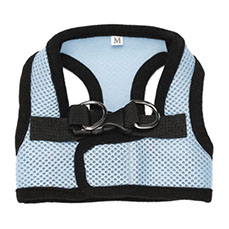
Believe it or not, there are people out there who make music specifically for dogs. Most of this sort of music is based around the research of Dr. Alfred Tomatis, dubbed the "Einstein of the ear" for his insight into psychoacoustics, or the effect of music and sound on the human nervous system.
When the body is under too much pressure due to illness, age, injury, or some other cause, it naturally reduces the degree of auditory and visual stimulation that it gets. This means that it will shut out sound and images in order to spend its energy renewing itself.
Some dog musicians use a technique referred to as "simple sound." In this method, complex auditory stimulation is reduced in order to allow for passive hearing. As opposed to active listening, in which the brain is consciously identifying intervals, rhythms, and other information, passive hearing allows the mind to absorb the sounds without too much concentration. This idea can be found in ambient music of all kinds.
For dog relaxation, studies have shown that solo piano music is the most appropriate. This is partly due to the simple nature of a single instrument, but the gentle tone of the piano itself also contributes to this phenomenon. Two or three instruments together can also provide gentle sounds that encourage relaxation and passive listening, but the most effective style is a single instrument, according to those who produce music for dogs.
Rhythm is also important in this genre, since the brain, heartbeat, and breathing rate will increase or decrease with the tempo of the music. Your best bet both for yourself and for your dog is to observe your respective bodily reactions. If you are trying to create a relaxing atmosphere and your dog starts running around, probably the music you are playing is not the best choice. On the one hand, the music might be agitating, but on the other, it could be boring. Trying a faster or slower selection can help you determine which it is.
Another factor is resonance. High-pitched sounds vibrate faster than low-pitched sounds. Dr. Tomatis showed that high pitches will charge up the nervous system while lower pitches will discharge it. Both of these can be useful in different situations. If you find that your dog is suffering from a strange lack of energy, you could try using some high-pitched, upbeat music to get it back on its feet. Conversely, if your dog is stressed or overstimulated, lower sounds with a slower tempo might be in order.
The proper functioning of the nervous system can affect mood and health, so if you are concerned that there is a problem with your canine, then it is worth a shot. If it does not seem to have any effect, at least you won't have wasted too much money. This kind of music can also enhance your home environment for yourself and your family.
Whether or not this type of music for dogs is really as effective as it claims to be remains to be seen. That being said, it never hurts to try out harmless new ways of relaxation and arousal that could benefit both you and your dog. If nothing else, you will get to hear some new and interesting music that has been carefully crafted to stimulate or relax your nervous system based on scientific principles. Really, there's no risk to you or your pet, and at the end of the day, you just might win out, even if it is amazing that people are actually making music with your dog in mind.
 How to Treat and Prevent Infected Wrinkles in Wrinkly Dog Breeds
In humans, wrinkles are a us
How to Treat and Prevent Infected Wrinkles in Wrinkly Dog Breeds
In humans, wrinkles are a us
 Fabulous Fashion For Your Puppy
Pet clothing is a flourishing industry; more and more p
Fabulous Fashion For Your Puppy
Pet clothing is a flourishing industry; more and more p
 Do You Deserve Your Dog?
Credit: sixninepix
Do You Deserve Your Dog?
Credit: sixninepix
 Dogs – Canine Rivalry – Dog Fighting
Dogs – Canine Rivalry –
Dogs – Canine Rivalry – Dog Fighting
Dogs – Canine Rivalry –
 Dog Life Jacket
This summer my hubby and I h
Dog Life Jacket
This summer my hubby and I h
Copyright © 2005-2016 Pet Information All Rights Reserved
Contact us: www162date@outlook.com